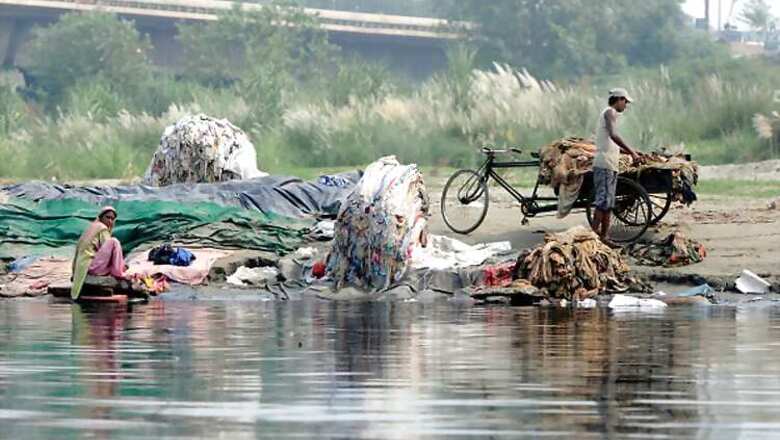
views
New Delhi: Parts in Delhi including areas along the Yamuna River bank, the Lutyens Zone and North Campus of Delhi University fall in "high" and "very high" seismic risk hazard index and would face greater impact in the event of an earthquake, says a report prepared by the Ministry of Earth Sciences.
However, most of Delhi face "least" and "moderate" risk, according to the Report on Seismic Hazard Microzonation of NCT of Delhi. JNU faces "least" threat if any earthquake strikes the national capital. The Ministry of Earth Sciences has prepared the report for Delhi and Kolkata under which it describes threat levels in different parts of the cities.
The report is based on study of various aspects like the kind of rock which is there in a particular area, groundwater level, soil quality and how can it affect the structures in case of an earthquake. "Study is being conducted for 30 more cities. We will bring out a similar report for other cities as well," Harsh Vardhan, Minister for Earth Science, said during the launch of the report.
The high risk zone in the national capital, mostly in patches, are concentrated in East, Central and Northern parts. Areas like Gita Colony, Sarita Vihar, Shikarpur, Pachim Vihar, Wazirabad, North Campus, Rithala, Rohini, Jahangirpuri, Bawana, Karol Bagh and Janakpuri fall under the "very high risk" index.
Most of these areas are along the bank of Yamuna. Places like Hauz Khas, Burari, Najafgarh and IGI Airport fall under "high risk" zone, while AIIMS, Vasant Kunj, Naraina, JNU campus and Ashok Vihar are among the safest places and fall under the "least" seismic risk index. Delhi falls in Zone 4 in terms of the threat perception from earthquakes.
"Delhi is not a major source of earthquake but it is definitely prone to earthquakes occurring in the Hindukush mountain range and the Himalayas. The Himalayas are as close as 180 kms from Delhi," said Vineet Kumar Gahalaut, Director of National Centre for Seismology. This was observed when major earthquakes hit the Hindukush in Afghanistan and Nepal.
B K Bansal, an advisor looking after projects related to seismology in the ministry, said the national capital does not face major risk but precautions must be taken by retrofitting the houses. "We will be giving the report to all concerned agencies so that they can take necessary steps to avoid any major catastrophe," Vardhan added.
















Comments
0 comment